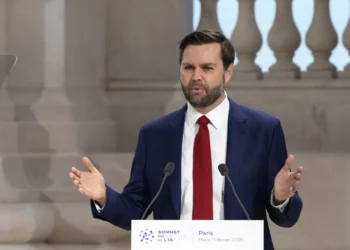Security expert Col. Festus Boahen Aboagye has weighed in on the disappearance of multiple Electricity Company of Ghana (ECG) containers, emphasizing that Ghana’s struggles with corruption at the ports cannot be solved by digital surveillance alone.
The issue, which has raised serious concerns about the country’s port security, procurement systems, and broader governance structures, is rooted in deeply embedded institutional failures and systemic corruption.
“The question presupposes that technology can address issues of dishonesty – that is not founded at all”
Col. Festus Boahen Aboagye, Security Expert
According to Col. Aboagye, while advanced digital surveillance has been effective in reducing cargo theft in countries like Singapore and the UAE, relying solely on technology would not address the core issue.
“Behind the use of technology are human beings and systems, government systems, procurement systems, core systems, and so on.
“So if persons within each of these institutions, clothed with appropriate authority, decide now to engineer a criminal network, that will cascade and affect all of these sectors”
Col. Festus Boahen Aboagye, Security Expert
He explained that corruption was driven by individuals who exploited weaknesses within the system, making technology an insufficient deterrent.
He acknowledged that Ghana had made efforts to digitize its port operations, according to the claims of former Vice President Dr. Mahamudu Bawumia.
However, he argued that even these technological advancements had not been enough to curb corruption.
“And yet the government which supervised the installation even got its figures wrong by reporting 3,000, when 3,000 probably was not the right figure at the port”
Col. Festus Boahen Aboagye, Security Expert
Politics in Procurement Failures
Col. Aboagye dismissed the notion that political influence could be removed from the ongoing scandal.
He noted that politicians were deeply embedded in every level of governance, including procurement decisions, making it impossible to separate the issue from political interests.
“You have found a minority leader, Afenyo-Markin, as usual, orchestrating certain things on the floor of the house.
“Honorable Adomako Mensah has come to say let’s remove politics out of it. It is impossible to remove politics out of it because it is politics that sends all those entities there that we are talking about”
Col. Festus Boahen Aboagye, Security Expert
He stressed that beyond the procurement failures, the real concern was the long-term impact on Ghana’s energy security.

Energy Security at Risk
Col. Aboagye highlighted that the missing ECG equipment “directly compromised Ghana’s ability to maintain and expand its electricity grid.”
“The first national security risk is energy security risk,” he emphasized.
He stated that ECG’s mismanagement had deprived the state of essential resources, worsening the country’s power crisis and affecting multiple sectors, including health and industry.
He noted that some of the missing cables and meters had likely been intended for rural electrification projects, which has now been derailed due to the actions of corrupt individuals.
Rejecting the notion that the ECG scandal was merely a case of mismanagement, Col. Aboagye characterized it as a deliberate act of organized criminality.
He argued that while breaches in procurement laws may have been used as a cover, the real issue was a well-orchestrated scheme designed to siphon state resources for private gain.
“This is not malfeasance and it’s not inefficiency,” he stated.
“Of course they use the conduit of procurement breaches or whatever to orchestrate organized criminality”
Col. Festus Boahen Aboagye, Security Expert
The ECG missing containers scandal has reignited the debate over corruption at Ghana’s ports and the broader governance failures that enable such incidents.
While calls for digital surveillance and stricter monitoring have been made, security experts like Col. Aboagye have cautioned that technology alone cannot resolve the deep-seated dishonesty within the system.
His assessment painted a grim picture of Ghana’s institutional vulnerabilities, where political interests, procurement breaches, and criminal networks operated in tandem to exploit public resources.
For him, with the country’s energy security now at stake, addressing these systemic issues will require more than investigations and arrests.
A broader reform effort, targeting procurement transparency, political accountability, and institutional integrity, will be necessary to prevent future occurrences of such large-scale resource diversion.
READ MORE: New SEC Boss Vows to Boost Investor Confidence and Market Awareness



















